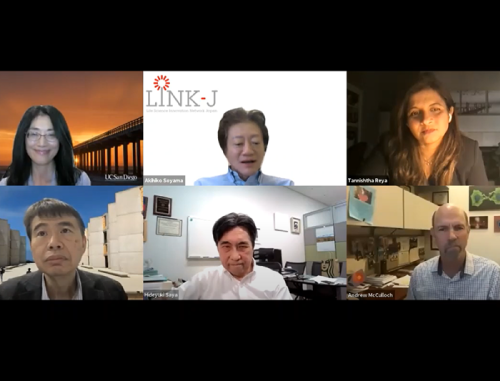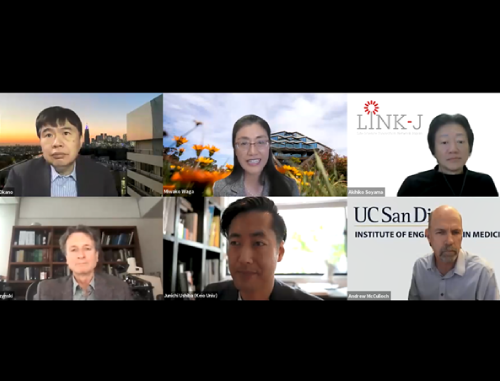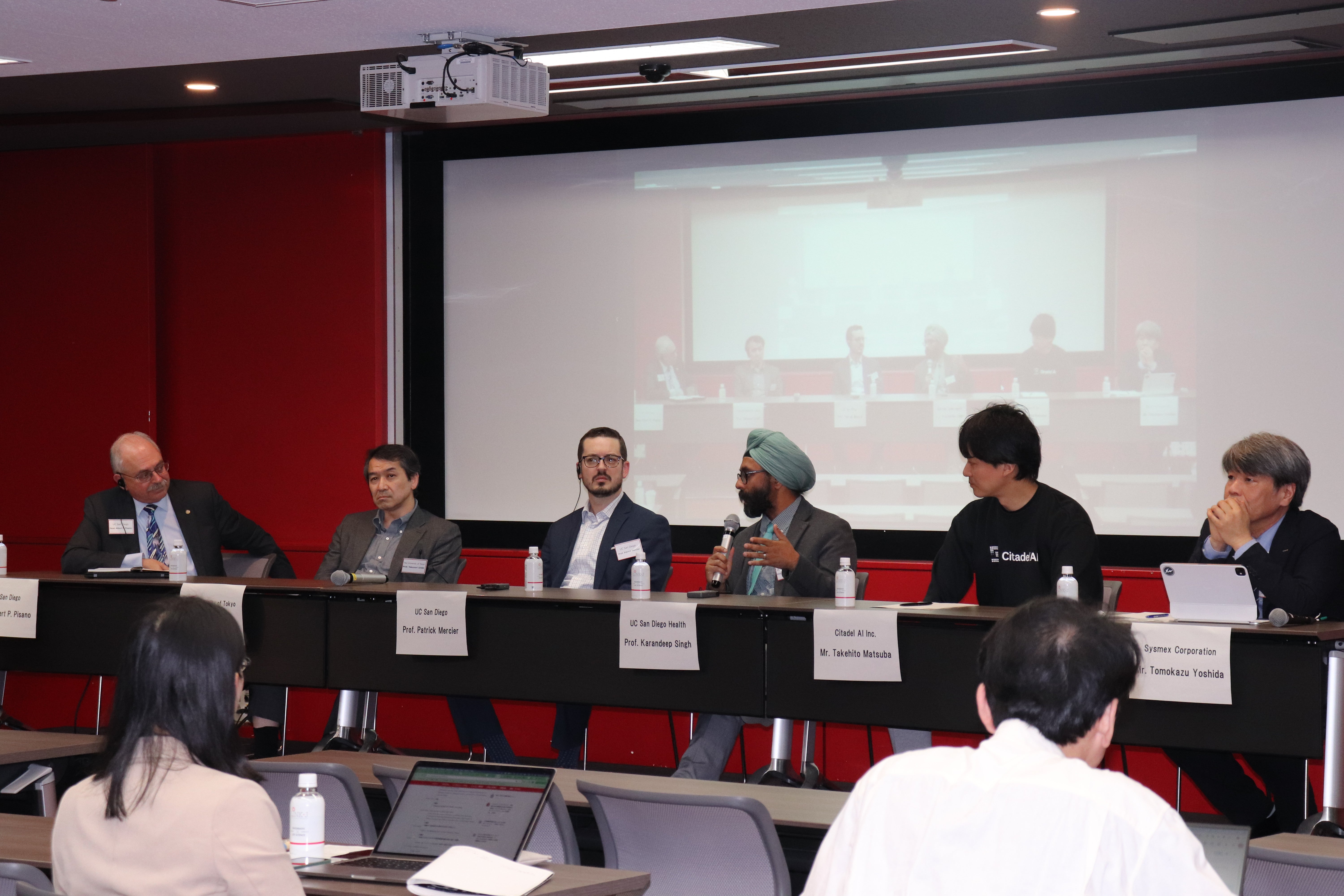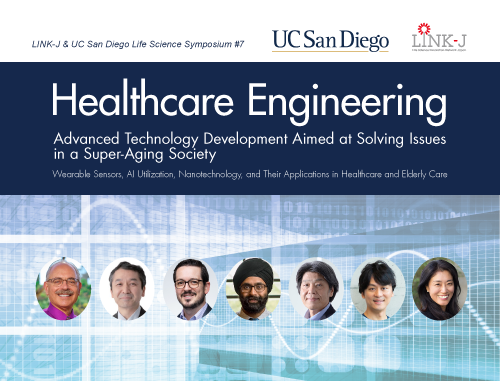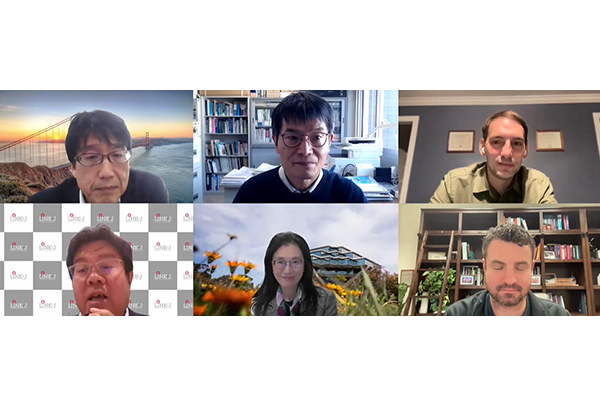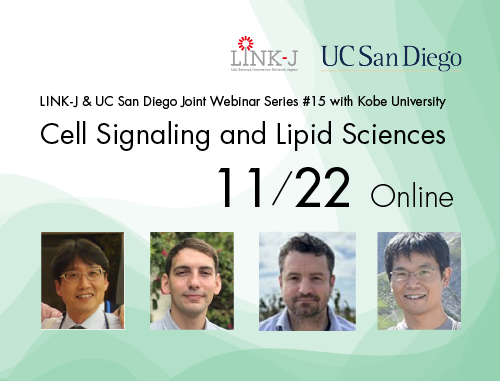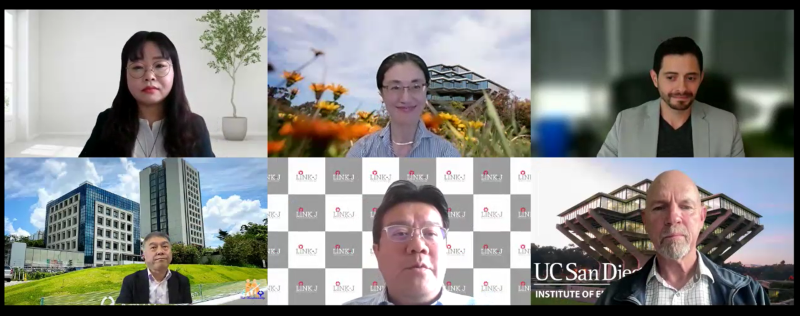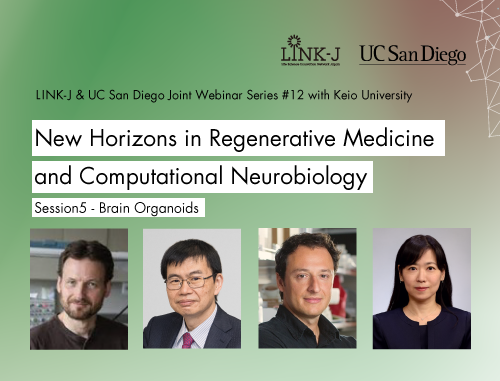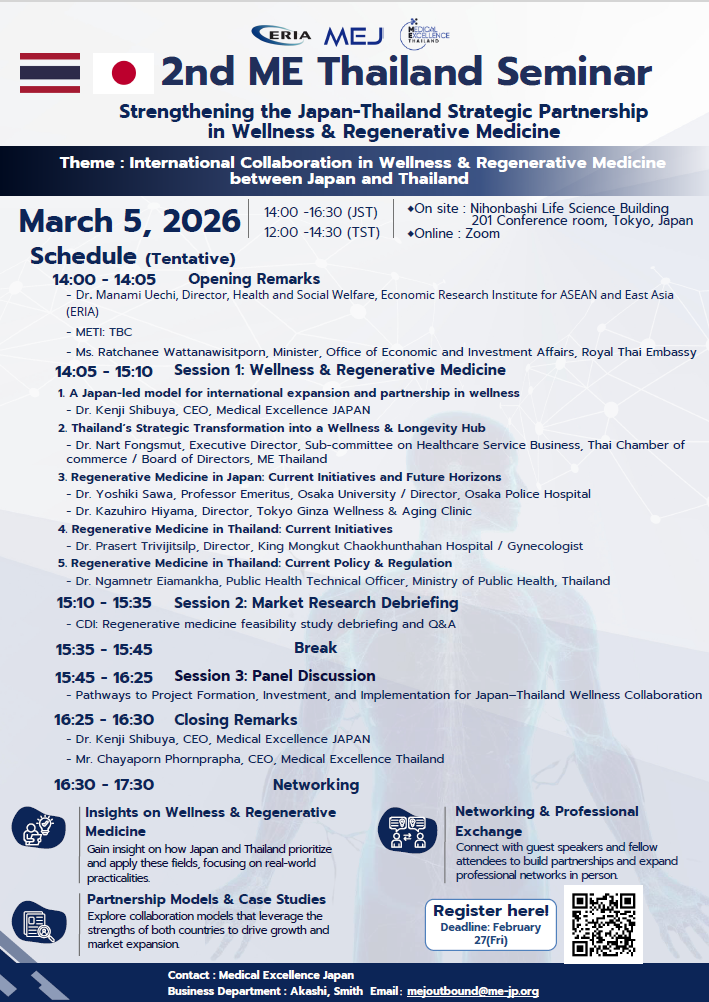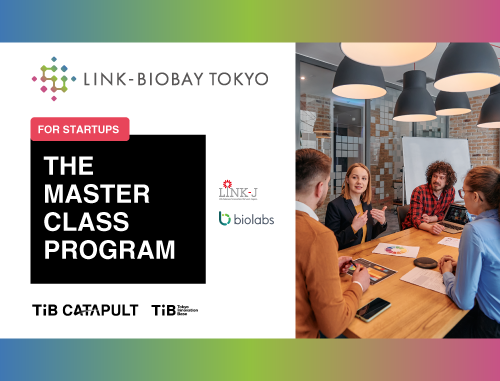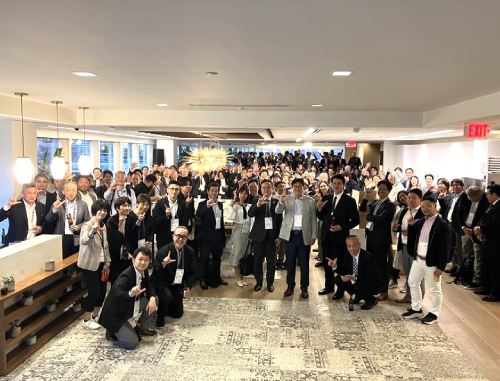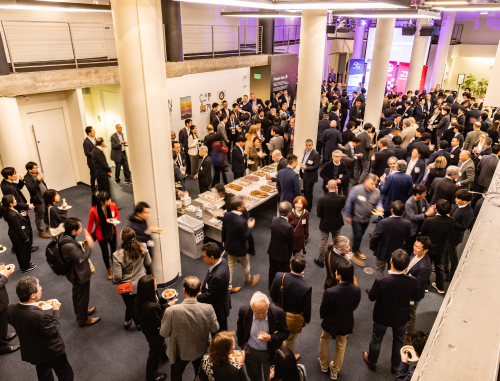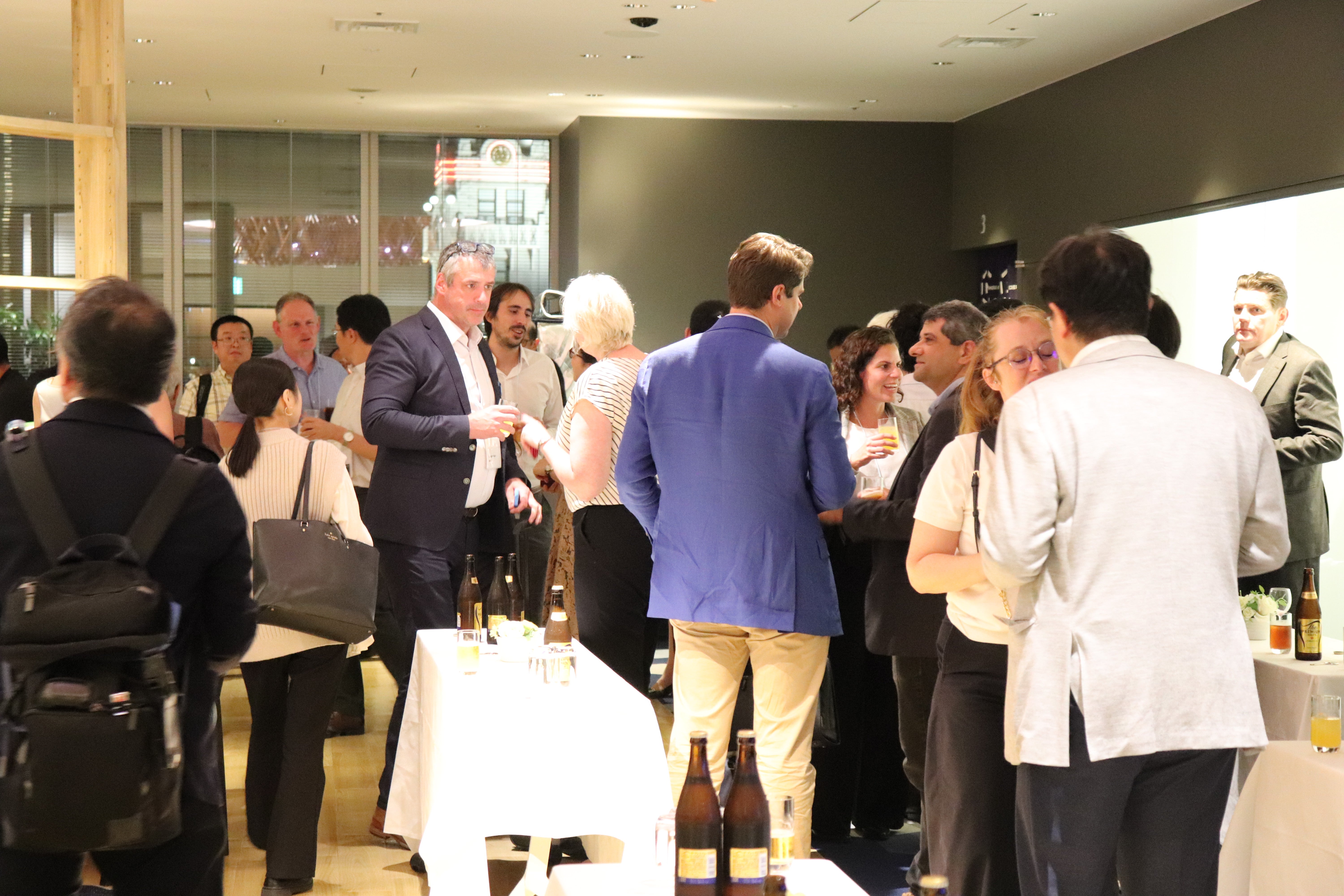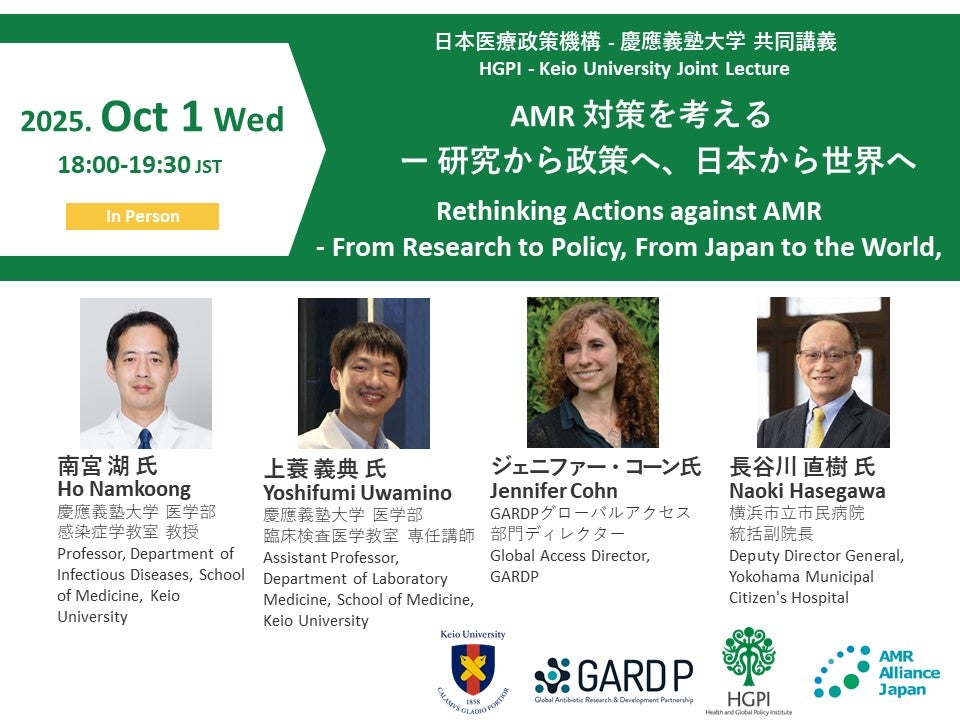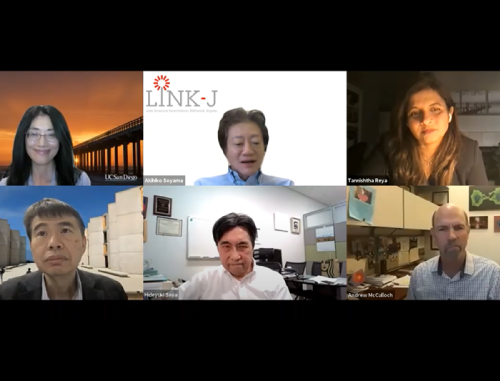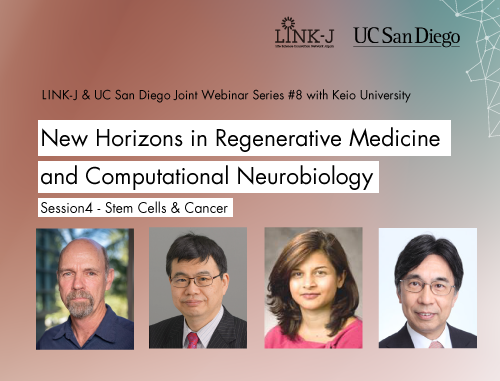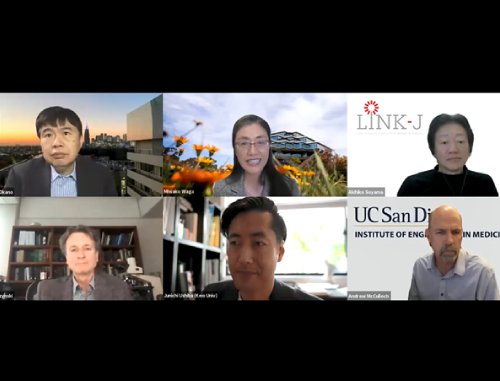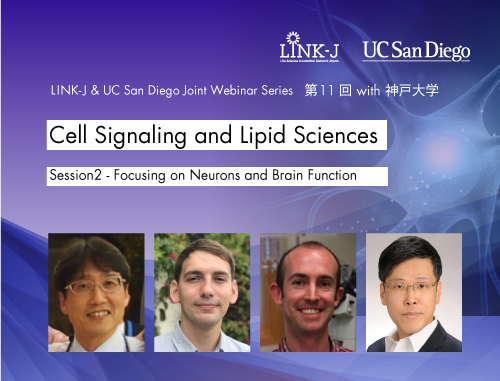LINK-J & UC San Diego Joint Webinar Series #12 with Keio University "New Horizons in Regenerative Medicine and Computational Neurobiology" Session 5 - Brain Organoids was held on March 9, 2023. (Host: LINK-J, Co-Host: University of California San Diego [UC San Diego])
Speakers
Dr. Hideyuki Okano, MD, PhD, Professor and Chair, Department of Physiology, Keio University School of Medicine
Dr. Gert Cauwenberghs, Professor of Bioengineering and Co-Director, UC San Diego
Dr. Alysson Muotri, Professor of Pediatrics and Cellular & Molecular Medicine, UC San Diego
Dr. Hiroko Shimada, Project Assistant Professor, Department of Physiology, Keio University School of Medicine
Dr. Shunichi Takahashi, President&Chief Operating Officer, LINK-J
Ms. Miwako Waga, Senior Director of International Outreach, UC San Diego
Akihiko Soyama, Chief Executive Officer, LINK-J
Presentations
"Modeling Human Neurodevelopment with Brain Organoids"
Dr. Alysson Muotri (Professor of Pediatrics and Cellular & Molecular Medicine, UC San Diego)
The complexity of the human brain, with thousands of neuronal types, permits the development of sophisticated behavioral repertoires, such as language, tool use, self-awareness, symbolic thought, cultural learning, and consciousness. Understanding what produces neuronal diversification during brain development has been a longstanding challenge for neuroscientists and may bring insights into the evolution of human cognition. Human pluripotent stem cells could differentiate in specialized cell types, such as neurons and glia. Moreover, induced pluripotent stem cells can be achieved from living individuals by reprogramming somatic cells that would capture their entire genome in a pluripotent state. From this pluripotent state, it is possible to generate models of the human brain, such as brain organoids. The reconstruction of human neural network activity in a dish can help to understand how neural network oscillations vary between normal and disease states. Our findings suggest a potential bridge to the gap between the microscale in vitro neural networks electrophysiology and a non-invasive electroencephalogram.
"Modeling Alzheimer's Disease and Tauopathy in Forebrain Organoids"
Dr. Hiroko Shimada, Dr. Hiroko Shimada, Project Assistant Professor, Department of Physiology, Keio University School of Medicine
It is known that the human cellular models of Alzheimer's disease (AD) and tauopathy can only recapitulate the very early stage of the disease. To overcome these limitations, we developed a technology to make forebrain organoids (FBOs) from feeder-free induced pluripotent stem cells (iPSCs) by regulating a FGF2 concentration and applied this method to generate FBOs from patients with familial AD (fAD FBOs). The obtained fAD FBOs recapitulated the amyloid-b pathology and increased tau phosphorylation but not tau aggregates. To fully induce the tau pathology, FBOs were injected with adeno-associated virus (AAV)-expressing P301L mutant tau. In these Tau-P301L FBOs, tau fibrils were observed in the neuronal cell body and neurites with immunoelectron microscopy, in addition to the sarkosyl-insoluble and thioflavin S-positive phospho-tau aggregates.
Collectively, we improved culture methods for generating forebrain organoids from feeder-free iPSCs and applied AAV microinjection to recapitulate the drastic phenotype. Therefore, we finally established next generation iPSC-models of AD and tauopathy. These new models will provide novel findings in Amyloid-b and tau pathogenesis and fundamental technology to develop drugs for treatment of dementia including AD and tauopathy.
This webinar included time for Q&A and panel discussion, which led to interesting interactions with the audience. Thank you very much for your participation. We plan to offer similar sessions in the future. Stay tuned!
